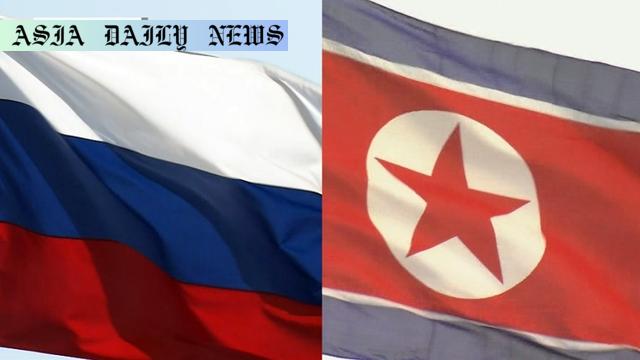Kim Jong Un’s Visit: Preparations are ongoing for North Korean leader Kim Jong Un’s visit to Russia, aiming to strengthen strategic ties.
- Key Point 1: Russian President Vladimir Putin invited Kim Jong Un for a visit to Moscow to deepen bilateral relations.
- Key Point 2: Russian Deputy Foreign Minister Andrey Rudenko has said discussions on the schedule and engagements are ongoing.
- Key Point 3: The dialogue between Russia and North Korea began through mutual visits by high-level officials from both nations.

Background of the Visit
In what could be perceived as a turning point in Russia-North Korea strategic relations, preparations are currently underway to arrange a state visit to Russia by the North Korean leader, Kim Jong Un. The invitation, originally extended by Russian President Vladimir Putin during a meeting in Pyongyang in June, emphasized the importance of deepening bilateral relations between the two nations. As announced by Russian Deputy Foreign Minister Andrey Rudenko, the collaborative efforts are making significant progress, with discussions focusing on finalizing a comprehensive itinerary for the proposed visit.
Strengthening Diplomatic Dialogue
Moscow and Pyongyang have been strengthening their diplomatic channels, primarily through high-level exchanges. Rudenko highlighted that he recently visited North Korea and held discussions to underscore the potential opportunities for collaboration in various sectors. Furthermore, last year witnessed a pivotal moment when North Korea’s Foreign Minister, Choe Son Hui, traveled to Russia to initiate what is now recognized as a strategic dialogue. The dialogue set the tone for an enhanced partnership between the two nations, reaffirming their commitment to global geopolitics and economic collaborations.
Further Diplomatic Visits on the Horizon
The proposed visit by Kim Jong Un isn’t a standalone gesture. Russian Foreign Minister Sergei Lavrov is expected to visit Pyongyang later this year to continue significant conversations aimed at consolidating the already burgeoning relationship between Russia and North Korea. These visits underline the mutual interest and commitment both nations hold in fostering a stronger geopolitical alliance amidst evolving global dynamics. Such high-profile engagements are vital to the discussions around sanctions, trade, military collaboration, and cultural exchange.
The Pivotal Significance of the Visit
While the visit is primarily symbolic, it further signifies North Korea’s attempt to diversify its alliances amid sanctions and increasing international isolation. For Russia, it serves as an opportunity to solidify its position globally by forming strategic partnerships with key nations in the Asia-Pacific region. Analysts see this move as one not just of mutual convenience, but also strategic necessity, given Russia’s growing challenges with the West and North Korea’s continued pursuit of survival mechanisms under duress from sanctions.



Commentary
The Importance of Strategic Partnerships Amid Geopolitical Shifts
The forthcoming visit of Kim Jong Un to Russia signifies more than a routine diplomatic engagement; it symbolizes the evolving matrix of global alliances as countries increasingly seek new partnerships in a polarized international framework. With the backdrop of evolving Western attitudes and sanctions, nations like North Korea and Russia are naturally exploring avenues to build reciprocal partnerships that resonate with their interests.
Russia’s Broader Geopolitical Strategy
From a Russian perspective, fostering closer ties with North Korea is a calculated move. In light of growing isolation from Western economies, Russia sees North Korea as an unconventional yet strategic partner whose needs for diplomatic and economic support can be mutually advantageous. The intention to enhance collaboration in key areas like energy, trade, and infrastructure development further reiterates Moscow’s commitment to diversifying its international partnerships.
North Korea’s Drive for Survival Amid Sanctions
For North Korea, this visit is pivotal. Sanctioned and diplomatically isolated, the state’s engagements with a powerful ally like Russia offer a lifeline in terms of economic support and geopolitical relevance. Beyond the economic aspects, this burgeoning alliance also ensures that North Korea remains relevant on the international stage, sending a clear signal to adversaries that it is not without substantial allies.
Conclusion
As the global order shifts, these strategic alliances underscore the growing importance of dialogue, connectivity, and collaboration between nations that seek to realign amidst global pressures. This meeting could serve as a symbol of resilience and strategic foresight, highlighting how alliances are shaped not by convenience, but by necessity and shared visions for the future.